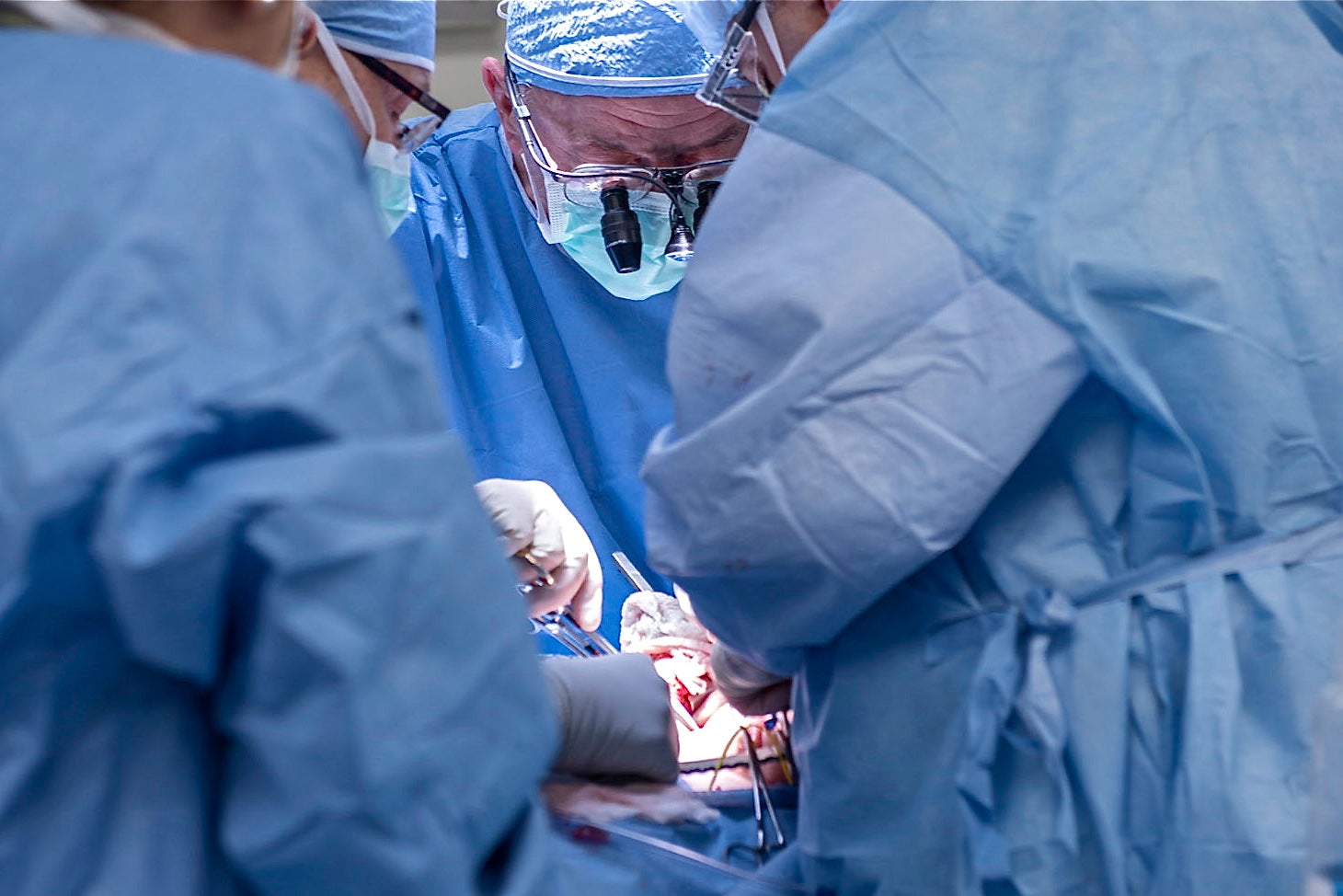Transgender Women And Childbirth: Exploring The Potential Of Uterine Transplants

Table of Contents
For transgender women, the desire to experience pregnancy and childbirth can be a deeply personal and significant goal. Traditionally considered unattainable, advancements in reproductive medicine, specifically uterine transplantation, offer a glimmer of hope. This article explores the potential and challenges of uterine transplants for transgender women, examining the medical feasibility, ethical considerations, and the future of this transformative technology. We will delve into the science, the ethical dilemmas, and the ongoing research paving the way for this groundbreaking procedure.
The Science of Uterine Transplantation
The Procedure
Uterine transplantation involves a complex surgical procedure requiring a suitable donor uterus. The process generally includes careful donor selection based on factors such as age, health history, and uterine compatibility. The surgery itself involves meticulous removal of the uterus from the donor, followed by transplantation into the recipient's body. This delicate procedure requires precise vascular anastomosis—connecting the uterine blood vessels to the recipient's circulatory system—to ensure adequate blood flow to the transplanted organ. Immunosuppressant drugs are crucial to prevent the recipient's immune system from rejecting the transplanted uterus.
- Vascular Anastomosis: This intricate step is crucial for the success of the transplant. Any complications during this phase can lead to organ failure.
- Immunosuppressant Drugs: Life-long immunosuppressant medication is necessary to prevent rejection, but these drugs carry risks of infection and other side effects.
- Success Rates and Complications: While uterine transplant success rates in cisgender women are steadily improving, they are not yet consistently high. Potential complications can include infection, rejection, blood clots, and other surgical risks.
The procedure for transgender women presents unique challenges. The recipient's hormonal profile, potentially influenced by hormone replacement therapy (HRT), needs careful management to ensure successful implantation and pregnancy. Differences in pelvic anatomy may also necessitate specialized surgical techniques.
Ethical and Social Considerations
Ethical Dilemmas
Uterine transplantation for transgender women raises complex ethical questions. Several key ethical considerations need to be addressed:
- Donor Exploitation/Coercion: Ensuring informed consent from donors and preventing exploitation or coercion is paramount.
- Child Well-being: The welfare of any child born through this method requires careful consideration and monitoring.
- Societal Impact and Discrimination: The broader societal acceptance and potential for discrimination against transgender women and children born through this technology must be addressed.
Perspectives from medical professionals, ethicists, transgender communities, and the wider public are crucial in navigating these ethical complexities. Open dialogue and robust ethical frameworks are vital to ensure responsible implementation of this technology.
Medical Feasibility and Challenges
Hormonal Considerations
Hormone replacement therapy (HRT) plays a critical role in preparing a transgender woman for pregnancy. Careful management of hormonal levels is essential for successful uterine transplantation and subsequent pregnancy.
- Hormonal Balance: Maintaining optimal levels of estrogen and progesterone is vital for successful implantation and fetal development.
- Hormonal Imbalance Complications: Imbalances can hinder uterine function, implantation, and increase risks of complications during pregnancy.
- Ongoing Research and Monitoring: Continuous research and precise monitoring of hormone levels are necessary to optimize outcomes.
The interaction between HRT and immunosuppressant drugs presents a significant medical challenge. Further research is required to determine the optimal hormonal profile for successful uterine transplantation and pregnancy in transgender women.
The Future of Uterine Transplantation for Transgender Women
Research and Development
The field of uterine transplantation for transgender women is still in its early stages, but ongoing research is promising. Several areas require further investigation:
- Surgical Technique Advancements: Improvements in surgical techniques aim to minimize complications and improve success rates.
- Immunosuppression Innovations: Developing less toxic and more effective immunosuppressant drugs is crucial to reduce side effects.
- Interdisciplinary Collaboration: Collaboration between surgeons, endocrinologists, reproductive medicine specialists, and ethicists is vital.
The ultimate goal is to make this procedure safer, more accessible, and more widely available for transgender women who desire to experience pregnancy and childbirth.
Conclusion
Uterine transplantation presents a remarkable, albeit still experimental, possibility for transgender women seeking to experience pregnancy and childbirth. While significant ethical and medical challenges remain, ongoing research and advancements in reproductive technology offer a path towards realizing this goal. The journey is complex, requiring careful consideration of ethical implications, medical feasibility, and the long-term well-being of both the mother and the child.
Call to Action: Learn more about the ongoing research and advancements in uterine transplants for transgender women. Continue the conversation and support research aimed at making this groundbreaking procedure a safe and accessible reality for those who desire it. Further research on transgender women and childbirth is crucial.

Featured Posts
-
 The Bangkok Post And The Push For Transgender Rights In Thailand
May 10, 2025
The Bangkok Post And The Push For Transgender Rights In Thailand
May 10, 2025 -
 Eleven Years Of High Potential A Legacy In Psych Spiritual Growth
May 10, 2025
Eleven Years Of High Potential A Legacy In Psych Spiritual Growth
May 10, 2025 -
 Benson Boones Response To Harry Styles Sound Alike Claims
May 10, 2025
Benson Boones Response To Harry Styles Sound Alike Claims
May 10, 2025 -
 Universitaria Transgenero Arrestada Debate Sobre Banos Y Derechos Transgenero
May 10, 2025
Universitaria Transgenero Arrestada Debate Sobre Banos Y Derechos Transgenero
May 10, 2025 -
 Makron I Tusk Podpisanie Dogovora Mezhdu Frantsiey I Polshey
May 10, 2025
Makron I Tusk Podpisanie Dogovora Mezhdu Frantsiey I Polshey
May 10, 2025
